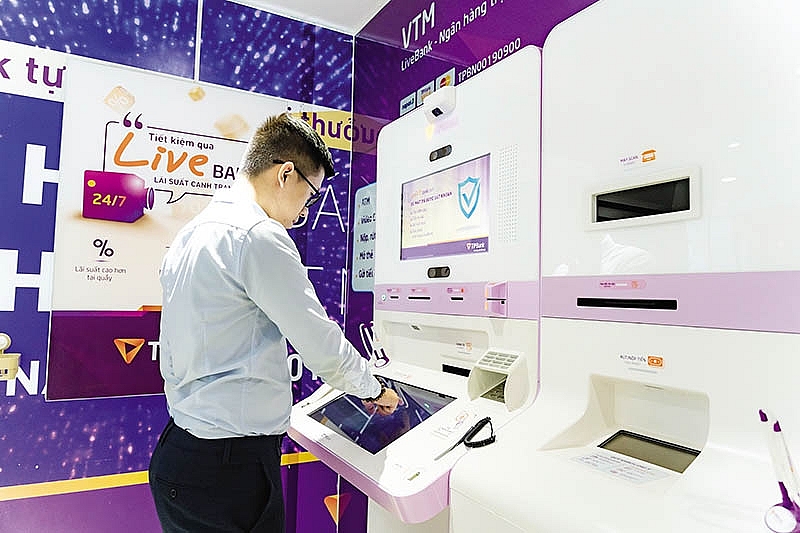Equity investment in Vietnam reaches new peak
 |
| Vietnam reports most impressive growth in financial services regionally, particularly in the banking sector |
Global equity investment shed 13.1 per cent in the total number of transactions and plunged 33.8 per cent in total transaction value in the first half last year, compared to the corresponding period in 2019.
Within the ASEAN-5 and Vietnam, equity transactions were slowing down last year compared to a robust 2019. The number of transactions dropped from 230 cases in the second half of 2019 to 200 cases in the first six months of 2020, meanwhile, the transaction value was curtailed by more than half, from $9.15 billion to just $4.3 billion.
Amid chaos and uncertainties due to the coronavirus pandemic, Vietnam’s equity investment market has set a record with 59 transactions valued at $1.14 billion, a slight increase compared to 2019.
Technology has maintained its growth momentum setting a five-year record in the number of transactions. Investments have channelled into fresh tech startups which provide breakthrough solutions in retail and services, such as booking and placement of online healthcare consultation, e-commerce, and provision of recruitment and human resource platforms, among others.
The scale of transactions was, however, modest as most of the ventures targeted Vietnam’s fledging tech startups.
| A series of sectors have been showing bright investment prospects in the beginning of 2021, including logistics, education, healthcare, technology, and renewable energies. |
Companies in retail and services related to breakthrough solutions were also high on the investors’ radar. For instance, the leading US equity fund Warburg Pincus poured $100 million into MoMo’s e-wallet which had 20 million users in 2019, and $130 million came from Singapore-headquartered private equity firm Northstar Group directly into Tiki’s pockets – one of Vietnam’s three leading e-commerce platforms in 2020.
Vingroup, Vietnam’s top private conglomerate, continues to hit records in the transaction value through GIC’s $500 million investment into Vincommerce (retail) in 2019, and $650 million investment from KKR and Temasek into Vinhomes (real estate) in 2020.
Cash flows into the healthcare sector are increasingly becoming a trend. Vietnam’s two leading investment funds, Mekong Capital and VinaCapital, have jumped on the bandwagon through a $31.8-million injection into Pharmacity’s drugstore chain and a $26.7-million deal with Thu Cuc Hospitals.
A series of sectors have been showing bright investment prospects in the beginning of 2021, including logistics, education, healthcare, technology, and renewable energies.
The market size of the logistics sector is expected to reach $113 billion in 2022, corresponding to a compound annual growth rate (CAGR) of 16.6 per cent. The growth is supported by new-generation free trade agreements, flourishing e-commerce, and the fact that global tech titans like Apple, LG, and Panasonic have resorted to Vietnam to diversify their supply chains and distribution networks in a bid to mitigate impacts from US-China trade war and the global health crisis.
Meanwhile, the education sector continues to attract investors who are leveraging Vietnam’s growing middle-class and an upsurge in education spending. The policies encouraging investment into projects that are wholly owned by foreign and private investors have also contributed to growth in the sector.
The healthcare sector may allure investors due to a raft of factors, such as the quickly ageing Vietnamese population.
The number of people aged above 65 has been rising quickly at a pace of 8 per cent in 2019 to reach 16 per cent by 2040. Similarly, per capita average healthcare spending rose from $194 in 2019 to $309 in 2024, alongside a shortfall in quality human resource and healthcare infrastructure, leading to supply deficiencies.
In recent years, the tech field was glittering in the eyes of risk-avid and equity investors with CAGR reaching 26.1 per cent during 2015-2019. This field is beneficial from a number of factors like tax incentives, government credit support, and low-cost and quality workforce.
As for renewable energy, with total installed capacity reaching 54,880MW in 2019 Vietnam ranked second in ASEAN in power system’s total installed capacity. A priority field, the government has set forth the targets of renewable energy accounting for 6.5 per cent, 6.9 per cent, and 10.7 per cent by 2020, 2025, and 2030 respectively.
To reach these goals, the renewable energy field would need $10.8 billion in investment capital annually until 2030. Renewable energies are bestowed numerous incentives like preferential tariffs and whole foreign ownership at energy firms.
The quick increase in the number of renewable energy projects has also entailed challenges as power capacity has been cut due to supply exceeding demand in some areas and system overload as current infrastructure is unable to absorb power output from new projects.
What the stars mean:
★ Poor ★ ★ Promising ★★★ Good ★★★★ Very good ★★★★★ Exceptional
Related Contents
Latest News
More News
- The generics industry: unlocking new growth drivers (February 04, 2026 | 17:39)
- Vietnam ready to increase purchases of US goods (February 04, 2026 | 15:55)
- Steel industry faces challenges in 2026 (February 03, 2026 | 17:20)
- State corporations poised to drive 2026 growth (February 03, 2026 | 13:58)
- Why high-tech talent will define Vietnam’s growth (February 02, 2026 | 10:47)
- FMCG resilience amid varying storms (February 02, 2026 | 10:00)
- Customs reforms strengthen business confidence, support trade growth (February 01, 2026 | 08:20)
- Vietnam and US to launch sixth trade negotiation round (January 30, 2026 | 15:19)
- Digital publishing emerges as key growth driver in Vietnam (January 30, 2026 | 10:59)
- EVN signs key contract for Tri An hydropower expansion (January 30, 2026 | 10:57)

 Tag:
Tag:
























 Mobile Version
Mobile Version